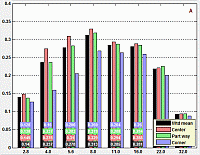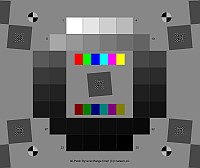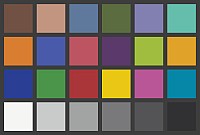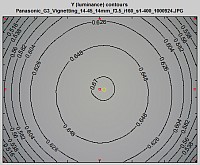View Release Notes
For beginners: We recommend these web pages for getting started:
Introduction to the new Imatest Main Window (New in 2021.2)
Image Quality Factors and Using Imatest – Getting started.
VIDEOS– Online training – Consulting – News
| Offline documentation | Download the website for offline view (with a web browser) |
| Image Quality |
IQ factors (KPIs) measured by Imatest, with links to detailed descriptions and instructions. |
| Sharpness | Introductions to sharpness and sharpening; comparisons of different charts; chart quality limitations & how to overcome them |
| Other IQ factors | Noise, SNR, Temporal noise, Dynamic Range (DR), Chromatic Aberrations, Distortion, Veiling glare, Shannon information capacity, etc. |
| IQ Utilities | Image Processing, SSIM, Image Statistics, Radial geometry |
| Getting started | Why Imatest?, Test charts, Lighting, Image capture technique, Setting up your lab, Using Imatest software |
| Start using Imatest software | Installation, Using Imatest, Image file formats & devices, Activation/Deactivation |
| General Instructions | Special standards, Supported devices, Test manager, Raw files, Test lab, INI files, Pass/Fail Monitor |
| Acquiring images | Files, formats, devices, and utilities for acquiring images |
| Knowledge Base highlights | Links to articles for troubleshooting, activation, and general advice on operation. |
| Troubleshooting | What to do when Imatest doesn’t work as expected |
| Slanted-Edge sharpness modules | SFR (manual ROIs), SFRplus, eSFR ISO, SFRreg, Checkerboard (auto ROI detection) The four auto-detection slanted-edge sharpness module are compared here. |
| Other sharpness modules | Log F-Contrast, Star, Random/Dead Leaves/Spilled coins, Wedge, Sharpness utilities & postprocessors |
| Sharpness utilities & postprocessors | MTF Compare, Image stabilization, Batchview, Find Sharpest Files |
| Tone, Color, Noise & Dynamic Range modules | Color/Tone (Interactive & Auto), CCM (Color Correction Matrix), CDP, Contrast Resolution, Colorcheck, Stepchart, Measuring patches |
| Spatial & Uniformity modules | Flatfield, Flatfield Interactive, Distortion, Dot pattern, Testing displays |
| Miscellaneous modules and utilities | Lighting Control, Arbitrary charts, Device Manager, Auto White Balance/Exposure/Focus (AWB, AE, AF), Printing & displaying test charts, Rename Files, Educational Apps, Database |
| Industrial Testing edition | Modules, Instructions for various interfaces (EXE, C, C++, Python, .NET), INI file reference, Pass/Fail, Operator Console, Speedup |
| Appendix | FAQ, Versions, Troubleshooting, Change Log, INI file reference, License |
Image Quality
General — Introduction to Image Quality Factors (Key Performance Indicators – KPIs)
Image quality factors – Overview and Imatest measurements Recommended for getting started.
Introduction – Summary table – Image quality factors – Sharpness – Texture – Noise – Information capacity – Tonal response – Dynamic range – Color accuracy – Distortion – Uniformity – Blemishes – Exposure accuracy/ISO sensitivity – Lateral chromatic aberration – Veiling glare – Color moiré – Software artifacts – Data compression – Printer quality factors
Sharpness
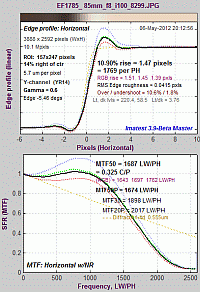 Sharpness – What is it and how is it measured?
Sharpness – What is it and how is it measured?
Introduction – MTF – MTF equation – Spatial frequency units – Summary metrics– MTF measurement matrix – comparing measurement techniques – Slanted-Edge measurements – Why a slanted edge? – Clipping – Noise reduction – Interpreting MTF50 – AutoFocus (AF) Speed – Calculation details – Slanted-edge algorithm – Imatest vs. ISO calculation – Links
Sharpening – and Standardized Sharpening for comparing cameras
Introduction – Examples – Oversharpening/Undersharpening – Examples – Unsharp masking (USM) – Links – Standardized sharpening
Comparing sharpness in different cameras – The application: “Image-centric” (for pictorial images) or “object-centric” (for medical, machine vision, etc.) strongly affects how images are compared.
Validating the Imatest slanted-edge calculation
Slanted-edge versus Siemens Star – A comparison of sensitivity to signal processing
Introduction – Images – Raw results – Slanted-edge results – Sinusoidal (Log F-Contrast and Siemens star) results – Extreme sharpening – Summary – Conclusions
Slanted-edge versus Siemens Star, Part 2 – Results for four additional cameras
Slanted-edge measurement consistency and repeatability – comparing different ISO speeds and ROI sizes. Incomplete, but still useful.
Nyquist frequency, aliasing, and Color Moire – introducing a color aliasing metric derived from hyperbolic wedges.
Diffraction, optimum aperture, and defocus – Lens aberrations – Diffraction – Pixel response limits and Q – Defocus
Display (Monitor) Sharpness – Display the chart – Capture the image – Analyze – Results – TV Lines – Monitor gamma – CMS systems
Camera Monitor Systems (CMS) – for automotive mirror replacement systems and some endoscopes
LSF (Line Spread Function) correction factor for slanted-edge MTF measurements
Compensating camera MTF measurements for chart and sensor MTF
Introduction – Calculation – MTF compensation files – Applying the compensation – Sensor MTF compensation for measuring lens MTF – Chart MTF measurements
Other Image Quality Factors
Temporal Noise – comparing the two-image and multi-image measurements
|
The white paper, “Camera information capacity: a key performance indicator for Machine Vision and Artificial Intelligence systems“, which briefly introduces information theory, describes the camera information capacity measurement, then shows results (including the effects of artifacts) is now available for download. |
Image quality utilities let you degrade, enhance, examine, or analyze any image (not just test charts)
Getting Started with Image Quality Testing
Why Imatest? | Test Charts | Lighting | Image Capture Technique | Setting up Your Lab | Using Imatest Software
Sample images for several modules from Github
Start Using Imatest Software
| Please note: You can install Imatest– and keep it installed– on as many computers as you like (Windows, Macintosh, and Linux); you never have to uninstall it. Imatest node-locked licenses can be activated on only one computer at a time, but the activation can be moved between computers as often as needed by deactivating it on the old computer and then activating it on another, following the instructions above. Imatest floating licenses do not need to be deactivated and activated— Imatest is available on any licensed computer as soon as it is no longer being used on another. This is far more convenient for multiple users than deactivating and activating. Floating licenses are available for multiple simultaneous users. |
Imatest Instructions – general
Saved settings – Imatest-v2.ini and INI files for use with Imatest IT
Acquiring images – Files, formats, devices, and utilities
Supported image acquisition hardware for Imatest Image Master
Using Direct Image Acquisition – Acquiring images directly from devices
Sony AYA Interface for direct image acquisition
The Imatest Functional Interface – A simplified interface for running tests with consistent settings
Knowledge Base highlights – Links to articles for troubleshooting, activation, and general advice on operation.
Tone, color, and spatial modules
Tone, Color, Noise, and Dynamic Range
Spatial and Uniformity modules
Miscellaneous modules and utilities
Imatest IT – Industrial Testing (non-GUI)
Appendix
Index of the Table of Contents
Image quality — Sharpness — Other IQ factors — IQ Utilities — Getting started — Imatest Instructions – general —
Troubleshooting — Knowledge Base highlights — Slanted-Edge sharpness modules — Other sharpness modules —
Tone, Color, Noise & Dynamic Range modules — Spatial & Uniformity modules —
Miscellaneous modules and utilities — Industrial Testing edition — Appendix


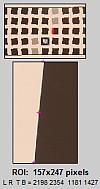 Using SFR Part 1
Using SFR Part 1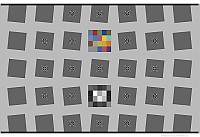
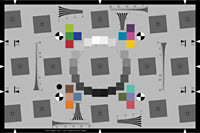
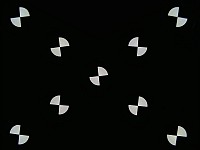
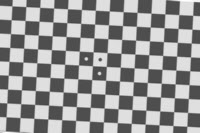
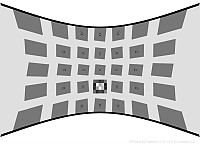
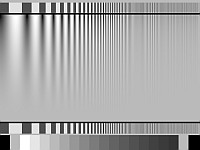
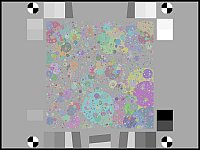 Random/Dead Leaves
Random/Dead Leaves